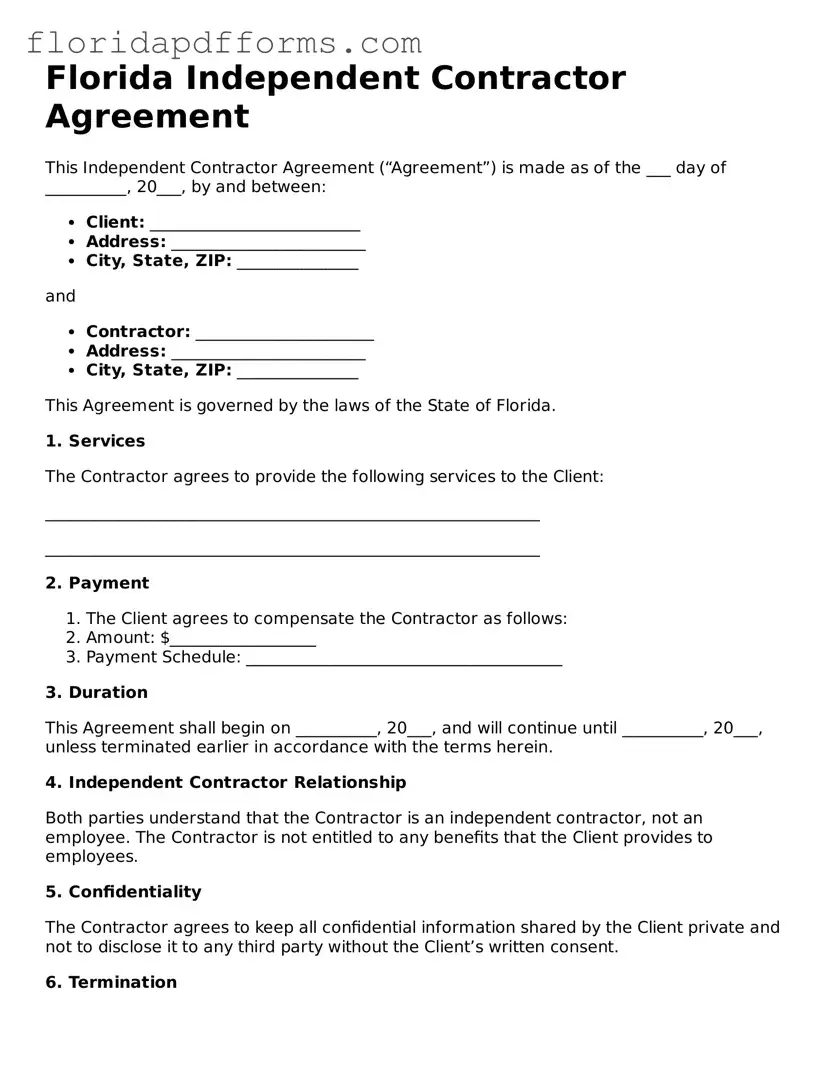Official Independent Contractor Agreement Template for Florida
The Florida Independent Contractor Agreement is a legal document that outlines the terms and conditions between a business and an independent contractor. This form serves to clarify the relationship, responsibilities, and compensation, ensuring both parties are on the same page. If you’re ready to establish a clear agreement, fill out the form by clicking the button below.
Modify Independent Contractor Agreement Now

Official Independent Contractor Agreement Template for Florida
Modify Independent Contractor Agreement Now

Modify Independent Contractor Agreement Now
or
⇓ Independent Contractor Agreement File
Don’t stop halfway through your form
Finish your Independent Contractor Agreement online with quick edits and instant download.